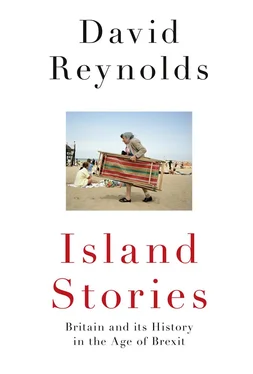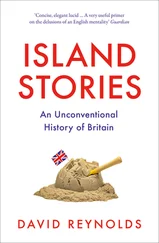The changing relativities of wealth and power
It is a precept of international affairs that wealth is needed to underpin power: to quote historian Paul Kennedy, there is ‘a very significant correlation over the longer term between productive and revenue-raising capacities, on the one hand, and military strength, on the other’. [38] Конец ознакомительного фрагмента. Текст предоставлен ООО «ЛитРес». Прочитайте эту книгу целиком, купив полную легальную версию на ЛитРес. Безопасно оплатить книгу можно банковской картой Visa, MasterCard, Maestro, со счета мобильного телефона, с платежного терминала, в салоне МТС или Связной, через PayPal, WebMoney, Яндекс.Деньги, QIWI Кошелек, бонусными картами или другим удобным Вам способом.
The British case certainly fits that broad argument. In 1880, Britain produced nearly 23 per cent of the world’s manufactured goods; only 10 per cent in 1928 when Churchill was Chancellor of the Exchequer and a mere 4 per cent in 1980, around the start of Thatcher’s premiership. As a trading nation Britain’s slide was slower but the end result was similar. In 1899 Britain accounted for 33 per cent of the world’s exports of manufactured goods, 25 per cent in 1950 and less than 10 per cent in 1980. [39] Конец ознакомительного фрагмента. Текст предоставлен ООО «ЛитРес». Прочитайте эту книгу целиком, купив полную легальную версию на ЛитРес. Безопасно оплатить книгу можно банковской картой Visa, MasterCard, Maestro, со счета мобильного телефона, с платежного терминала, в салоне МТС или Связной, через PayPal, WebMoney, Яндекс.Деньги, QIWI Кошелек, бонусными картами или другим удобным Вам способом.
While Britain’s share of the world’s wealth gradually diminished, the cost of armaments rose exponentially. In the 1980s, for instance, 385 Tornado fighters for the RAF cost more in real terms than all the 21,000 Spitfires produced before and during the Second World War. [40] Конец ознакомительного фрагмента. Текст предоставлен ООО «ЛитРес». Прочитайте эту книгу целиком, купив полную легальную версию на ЛитРес. Безопасно оплатить книгу можно банковской картой Visa, MasterCard, Maestro, со счета мобильного телефона, с платежного терминала, в салоне МТС или Связной, через PayPal, WebMoney, Яндекс.Деньги, QIWI Кошелек, бонусными картами или другим удобным Вам способом.
Yet a nation that fell behind in the spiral of technological sophistication risked eclipse as a first-rank power, especially if others overtook it in economic capacity.
And this was bound to happen. Britain’s Victorian-era economic supremacy was in a sense artificial, given the country’s size and population. Britain’s comparative advantage was certain to be reduced once the process of industrialisation spread to countries with larger populations and greater resources – Germany in the late nineteenth century, America during the twentieth century and China in the twenty-first. The United States and the People’s Republic were both countries the size of a continent, blessed with a booming workforce, abundant natural resources and a vast tariff-free internal market. Apart from being disadvantaged in the long run by relative size, Britain was also susceptible to the ‘catch-up’ phenomenon. Once countries had crossed a basic socio-economic threshold, they could copy an economic leader’s technological innovations, rather than having to learn by trial and error. And the growth rates of previously underdeveloped countries always look particularly spectacular – the ‘Asian tigers’, for instance, in the 1960s, and China during the last quarter-century.
The predominant British response to economic catch-up was to consolidate existing advantages. One of these was its naval-industrial complex – based on integrated steel/armament/shipbuilding firms such as Vickers, Armstrong-Whitworth and John Brown, as well as the Royal Dockyards – which later diversified into military aircraft and tanks. In the early 1930s, Britain and France shared half of global trade in armaments almost equally between them; in 1938, Hawker-Siddeley advertised itself ‘the leading aircraft organisation in the world’. The British arms industry was boosted by the two world wars and sustained by the Cold War. Even though the ‘warfare state’, like the slave trade, is now largely omitted from general narratives about the British economy, it matters as much in the history of modern Britain as the ‘welfare state’. [41] Конец ознакомительного фрагмента. Текст предоставлен ООО «ЛитРес». Прочитайте эту книгу целиком, купив полную легальную версию на ЛитРес. Безопасно оплатить книгу можно банковской картой Visa, MasterCard, Maestro, со счета мобильного телефона, с платежного терминала, в салоне МТС или Связной, через PayPal, WebMoney, Яндекс.Деньги, QIWI Кошелек, бонусными картами или другим удобным Вам способом.
Even more important were financial and commercial services – another aspect of Britain’s economy often neglected by narratives of rise and decline that focus on heroic industrialism. This service sector coexisted with the development and mutation of industrialisation; indeed these processes were often complementary because goods can be derived from services just as much as services from goods – exemplified by innovations across the centuries ranging from bills of exchange and actuarial tables to barcoding and computerised trading. [42] Конец ознакомительного фрагмента. Текст предоставлен ООО «ЛитРес». Прочитайте эту книгу целиком, купив полную легальную версию на ЛитРес. Безопасно оплатить книгу можно банковской картой Visa, MasterCard, Maestro, со счета мобильного телефона, с платежного терминала, в салоне МТС или Связной, через PayPal, WebMoney, Яндекс.Деньги, QIWI Кошелек, бонусными картами или другим удобным Вам способом.
Britain’s merchant navy, most of it serving non-British customers, headed the list of ‘invisible’ earnings, supported by insurance and banking. Together with profits from overseas assets such as railways, plantations, utilities and oil concessions, these earnings were equivalent to around 75 per cent of the earnings from exports of domestic merchandise in the 1890s. [43] Конец ознакомительного фрагмента. Текст предоставлен ООО «ЛитРес». Прочитайте эту книгу целиком, купив полную легальную версию на ЛитРес. Безопасно оплатить книгу можно банковской картой Visa, MasterCard, Maestro, со счета мобильного телефона, с платежного терминала, в салоне МТС или Связной, через PayPal, WebMoney, Яндекс.Деньги, QIWI Кошелек, бонусными картами или другим удобным Вам способом.
These more than covered the gap between Britain’s imports and exports, and they provided a ‘war chest’ on which British governments drew in both world wars. Indeed, during the 1930s, the Treasury referred to Britain’s financial position as the ‘fourth arm’ – as central to waging a future war as the three armed services.
Читать дальше












